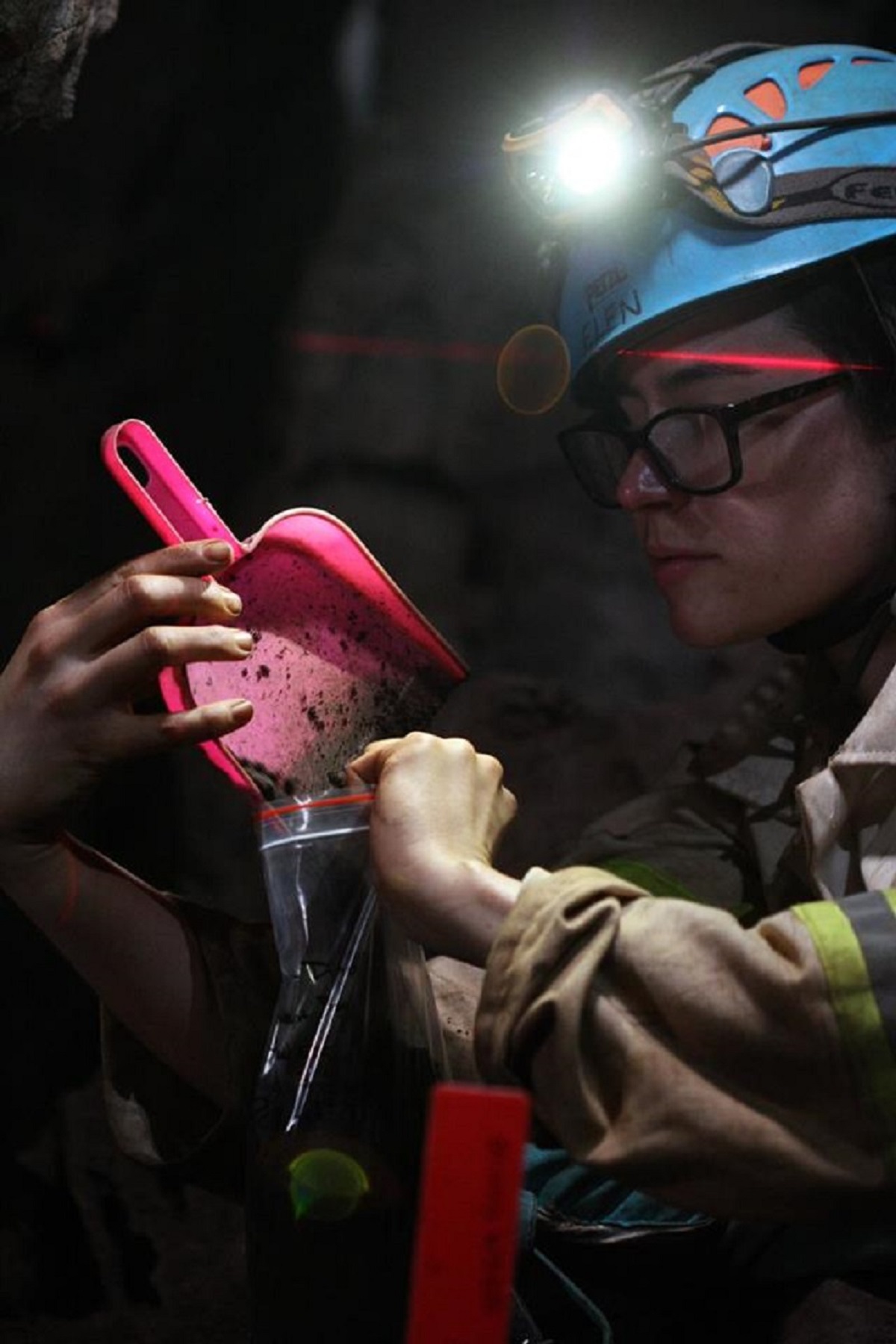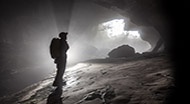
In the final part of her report for Darkness Below, Rising Star Angharad Brewer Gillham looks back on her adventures underground in South Africa, and has advice for all would-be explorers – grab your chance when you can.
I’m writing this on my way back to Switzerland and my day job, and a parcel of colleagues, friends and family who will probably be appalled when they see how much dust and how many bruises I’ve collected over the last three weeks. The time feels like it passed between one blink and the next. But it also feels as if I don’t remember what it’s like not to wake up at 5.30am and be dressed in filthy overalls and grubby boots for a 7am briefing, ready to enter the cave by 7.30.
Everything about the life I know in Switzerland feels foreign. I only hope I haven’t forgotten how to speak French. While in South Africa I haven’t spoken more than a few words of French, and nearly all of them were rude. By contrast, Maropeng and Mathabela, two of the safety cavers – Maropeng does a great deal of the rigging for the cave, and Mathabela is a talented photographer who takes a lot of site photographs – have been teaching me phrases in Tswana, most of which I believe are polite. Embarrassingly, I never learned more than a few words of any South African language when I lived in South Africa as a teenager, and I’ve really valued the chance to pick up a bit more now.
Although I am not sure what possessed Maropeng to start language lessons when I was negotiating the Leap of Faith. It is difficult to concentrate on your accent when you are staring down an eight-metre drop.
I have learned a lot more than basic Tswana. I know I’ll treasure what I’ve learned. My excavation techniques have improved enormously, and I am a lot better at moving in the cave. I’ve made a much more direct acquaintance with the art of science communication – there’s a huge difference between writing press releases and chatting directly to kids about your work! And I’ve discovered how to avoid that one rock in Superman’s Crawl I spent all of week two whacking my elbow on. I’ve made friends I never want to forget. I’ve learned how dry red dust sticks to your elbows and the whorls of your toes, and how bruises pattern on shins and knees.
I may need to decontaminate my luggage and scrub everything before I unleash myself on an unsuspecting Switzerland, but I’m keeping the knowledge. I’m writing everything down. I’m taking pictures of everything, and drawing until my fingers give in – and that, too, has been another unexpected lesson, that sometimes people are actually interested in the little things you do for fun, and think don’t count for anything. When I bought a sketchbook to take into the cave, it was because Marina Elliott saw me drawing in a sketchbook too nice to ruin and said it would be interesting if I drew the actual excavations.
Here’s the most important lesson I learned. It might be useful to you, too.
I wasn’t going to apply for Rising Star. I saw the call for participation and I sighed over it. I didn’t think I was good enough. I thought they were looking for amazing cavers with a PhD and a decade of excavation experience under their belt. I was a novice caver with a Master’s and I definitely didn’t consider myself that experienced. I’d worked for Wits before, as a student intern and general dogsbody. I’d turn up in the summers and be pointed at a problem to fix, and I’d be happy as Larry for the next several weeks. I always wanted to go back. As I said in my previous post, I didn’t see how I could. I didn’t think this was my chance.
I joked about it to my undergraduate dissertation supervisor, and to a friend who used to work for Wits. I was surprised when they advised me to apply. I still didn’t believe I was good enough.
I didn’t believe it when I was offered an interview. I didn’t believe it when I was offered the role. I didn’t believe it when I studied in advance of joining the expedition. I didn’t believe it when I got on the plane. I didn’t believe it when I met my fellow trainees and realised how brilliant they were.
I only believed I was good enough when I stepped into the cave and thought ‘oh, hello, this feels like home.’ And that was a good four weeks after I got the job. Four teeth-grittingly anxious weeks. In hindsight, listening to my friends, family, mentors and colleagues when they said how exciting joining the expedition was and how great I’d be at the work would have saved me a lot of stress.
Imposter syndrome can strike anyone, and when the blow lands it hurts. It feels like standing on a foothold that looks solid, but rocks under your feet as your weight lands on it. Living with that edge of panic under your skin is painful. It’s also unnecessary.
Imposter syndrome is a liar and it will take all your most exciting chances from you if you let it. Don’t listen. Take those chances before someone else gets there first.
You can find more of Angharad’s adventures chronicled on Darkness Below:
Part 1: Dispatches from one of caving’s Rising Stars
Part 2: Going underground … the Rising Stars feel the squeeze
